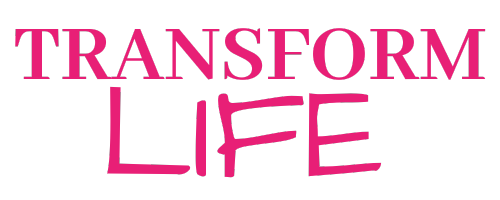
Living with disabilities can present unique challenges that affect various aspects of daily life, from social interactions to independent living. For many adults with disabilities, navigating these challenges can be daunting without adequate support and understanding. Positive Behaviour Support (PBS) emerges as a crucial framework that aims not only to address behavioural challenges but also to empower individuals, promote independence, and enhance overall well-being. In this blog post, we will explore how PBS plays a pivotal role in supporting adults living with disabilities, focusing on its practical applications and the transformative impact it has on their lives.
Understanding Positive Behaviour Support (PBS)
Positive Behaviour Support is a person-centred approach that seeks to understand and address challenging behaviours in a proactive and constructive manner. Unlike traditional behaviour management strategies that may focus on punishment or suppression, PBS emphasizes prevention, teaching alternative skills, and modifying environments to support positive behaviours. At its core, PBS recognizes that behaviours serve a purpose and are influenced by environmental factors, requiring a collaborative effort among individuals, their support networks, and professionals.
Practical Applications of Positive Behaviour Support
1. Behavioural Assessment and Planning
PBS begins with a thorough assessment to understand the function and triggers of behaviours. This assessment involves gathering information through observation, interviews, and data collection to identify patterns and underlying reasons for challenging behaviours. Based on this assessment, a behaviour support plan is developed collaboratively with the individual, their family, caregivers, and relevant professionals.
2. Skill Development
A key component of PBS is teaching individuals alternative behaviours and skills that serve the same function as challenging behaviours. This may include communication skills, social skills, problem-solving strategies, and self-regulation techniques. By equipping individuals with these skills, PBS enhances their ability to navigate daily challenges more effectively and promotes greater independence.
3. Environmental Modifications
PBS emphasizes modifying the physical and social environment to reduce triggers and promote positive behaviours. This may involve changes such as creating visual schedules, establishing clear routines, providing sensory accommodations, and ensuring accessibility in various settings. By creating supportive environments, PBS minimizes barriers to participation and encourages individuals to engage more fully in their communities.
4. Collaboration and Support
Successful implementation of PBS requires collaboration among all stakeholders involved in the individual’s life, including family members, caregivers, educators, therapists, and community support providers. By fostering a collaborative approach, PBS ensures consistency in strategies and support across different settings, reinforcing positive behaviours and promoting continuity of care.
5. Promotion of Self-Determination
PBS values the autonomy and self-determination of individuals with disabilities, encouraging active participation in decision-making processes related to their care and support. By empowering individuals to make choices and advocate for their needs, PBS promotes a sense of empowerment and enhances self-confidence.
Benefits of Positive Behaviour Support for Adults with Disabilities
Implementing Positive Behaviour Support yields numerous benefits that contribute to the overall well-being and quality of life for adults living with disabilities:
- Enhanced Independence: By teaching adaptive skills and promoting self-management, PBS enables individuals to take on greater responsibilities and make informed decisions in their daily lives.
- Improved Social Relationships: PBS helps individuals develop and maintain positive social interactions by teaching appropriate social behaviours and communication skills. This fosters meaningful relationships and reduces social isolation.
- Reduction of Challenging Behaviours: Through proactive strategies and environmental modifications, PBS effectively reduces the occurrence of challenging behaviours that may interfere with daily functioning and community participation.
- Enhanced Quality of Life: By addressing the root causes of behaviours and promoting positive outcomes, PBS contributes to a higher quality of life characterized by greater satisfaction, fulfillment, and overall well-being.
Real-Life Impact of Positive Behaviour Support
Positive Behaviour Support has a profound impact on the lives of adults living with disabilities by promoting their independence, well-being, and community integration. For example:
- Employment: PBS strategies in vocational settings may include job coaching, workplace accommodations, and skill-building programs to support individuals in achieving and maintaining employment.
- Daily Living Skills: PBS interventions focus on teaching essential life skills such as personal care, household management, and financial literacy, enabling individuals to live more independently.
- Community Participation: By addressing barriers and promoting inclusion, PBS encourages individuals to participate in recreational activities, volunteer opportunities, and social events within their communities.
Conclusion
Positive Behaviour Support represents a paradigm shift in how we support and empower adults living with disabilities. By focusing on understanding, prevention, skill development, and collaboration, PBS promotes positive outcomes and enhances overall quality of life. As we continue to advocate for inclusive practices and support systems, embracing PBS remains essential in fostering independence, dignity, and meaningful participation for individuals with disabilities. Through its holistic approach, PBS not only addresses behavioural challenges but also celebrates the strengths and potential of each individual, paving the way for a more inclusive and supportive society.
In summary, Positive Behaviour Support serves as a catalyst for positive change, empowering adults with disabilities to navigate life’s challenges with confidence, resilience, and a sense of purpose. By promoting independence, enhancing social connections, and creating supportive environments, PBS exemplifies a commitment to inclusion and empowerment for all individuals, regardless of ability.

Transform Life is a NDIS registered organisation that provides support for you and your family.
Book your consult with an experienced Therapist at Transform Life to explore how PBS can support you and your family.








